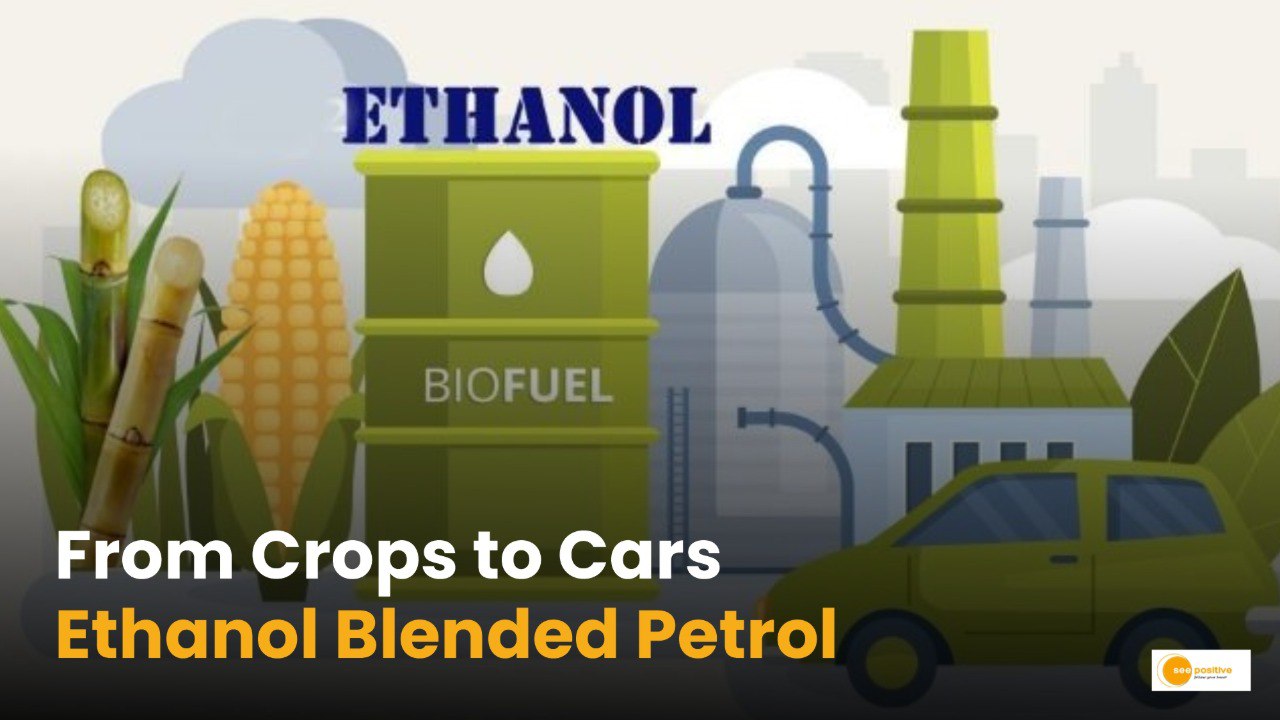Ethanol-blended petrol: As the world grapples with the dual challenges of climate change and energy security, alternative fuels are becoming increasingly important. Among them, ethanol-blended petrol has emerged as a practical and eco-friendly solution, particularly in countries looking to reduce their dependence on fossil fuels and cut down harmful emissions.
What is Ethanol-Blended Petrol?
Ethanol-blended petrol is a mixture of conventional petrol (gasoline) with ethanol, a type of alcohol typically derived from sugarcane, corn, or other biomass. The most common blends include:
- E10: 10% ethanol, 90% petrol
- E20: 20% ethanol, 80% petrol
These blends can be used in most modern petrol engines with little or no modification.
Why Ethanol?
Ethanol is a renewable biofuel that offers several benefits over pure petrol:
- Lower Carbon Emissions: Ethanol burns more cleanly, producing fewer greenhouse gases.
- Energy Security: It can be produced domestically, reducing dependence on oil imports.
- Economic Boost: In agricultural economies, it creates demand for crops like sugarcane and maize, supporting rural livelihoods.
India’s Ethanol Push - India has set ambitious targets for ethanol blending to curb pollution and import bills.
- In 2021, India achieved 8.5% ethanol blending.
- The country aims to reach 20% (E20) blending by 2025 under its Ethanol Blending Programme (EBP).
- Ethanol is primarily produced from molasses, a byproduct of the sugar industry, although newer sources like grain-based ethanol are also being developed.
Challenges and Considerations - While ethanol-blended petrol offers several advantages, there are challenges:
- Lower Energy Density: Ethanol contains less energy than petrol, which can slightly reduce fuel efficiency.
- Vehicle Compatibility: Older vehicles may experience corrosion or engine wear with higher ethanol content.
- Water Usage & Land: Large-scale ethanol production can strain water resources and land meant for food crops.
The Road Ahead
With the right infrastructure, research, and incentives, ethanol-blended petrol could play a crucial role in transitioning to cleaner transportation. Innovations like second-generation ethanol (from agricultural waste) and flex-fuel vehicles are expected to further enhance its viability.


